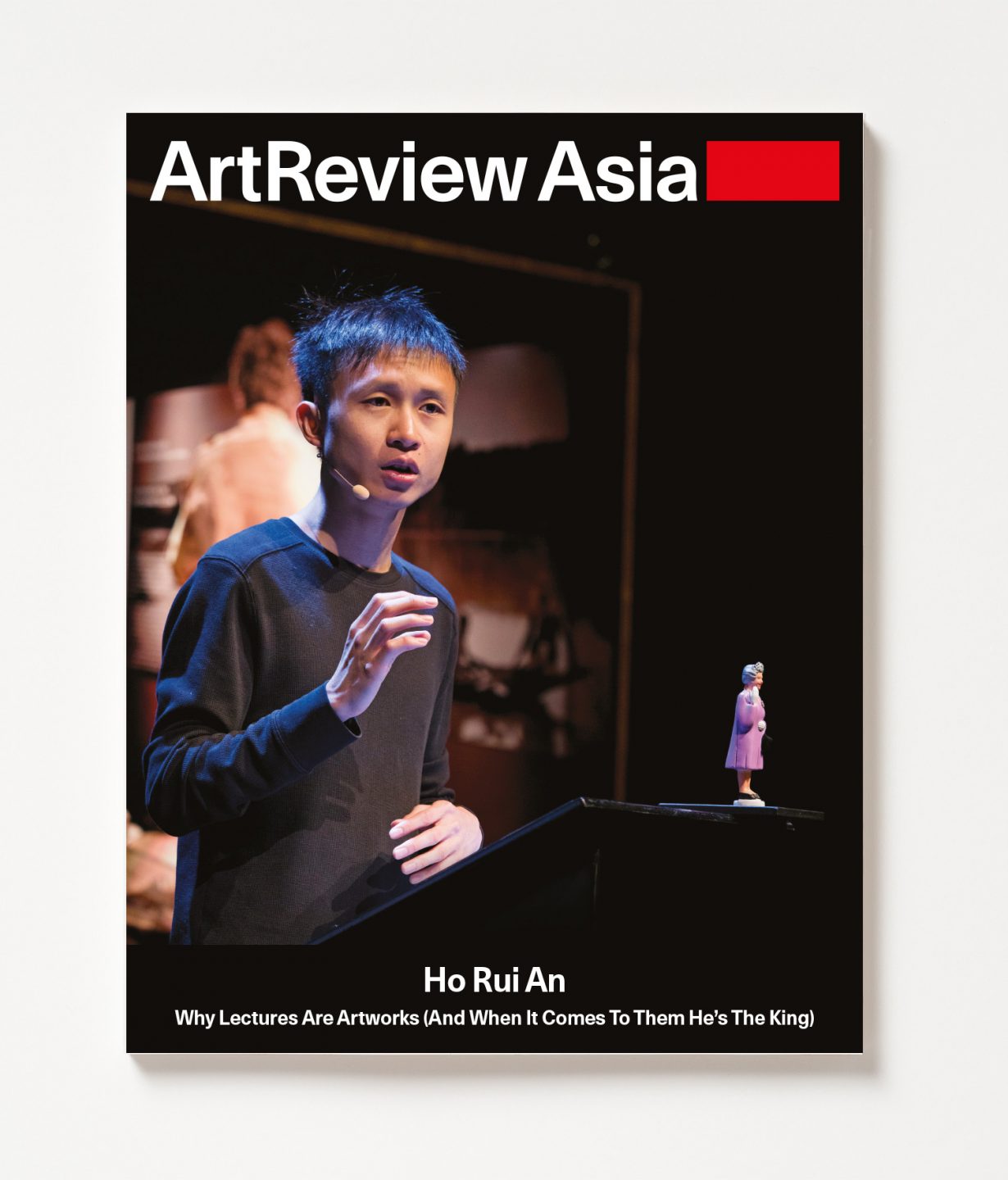Featuring Ho Rui An, Rice Brewing Sisters Club, Agus Suwage, Hong Sang-soo and collective practice in Thailand

ArtReview Asia’s Autumn issue looks at art’s entanglement (both deliberate and accidental) with economic and political systems. Or, in other words, context.
Singaporean artist Ho Rui An’s work, which most often takes the form of ‘performance-lectures’, considers the pervasiveness of neoliberal logic, which ‘has infiltrated all manner of life, including politics, film, art and most chillingly, individual subjectivity’, writes Adeline Chia. And while critiquing such logic, he uses it too, to make jumps between the aesthetics of furniture and power plays, between actions and signals and the often-feeble connections that link the two. Exploiting its logic as its logic exploits so many of us. Whether directing his critique to Singapore or to Asia more broadly, what makes Ho’s work compelling is the powerful image or idea he harnesses to make his case: ‘the atmosphere of capitalism is naturalised to a degree that it is lived by us all, but remains largely unlocatable, being everywhere and nowhere… These images that Ho selects – even if they don’t quite pierce the veil – provide an important descriptive truth of it.’
Over in Thailand, Max Crosbie-Jones zooms in on the evolution of collective practice in the country’s art scene, as its very existence comes under political threat. In a profile of the South Korean collective Rice Brewing Sisters Club, Annie Jael Kwan turns to a different experiment in community-building, conceived around the concept of ‘social fermentation’. Bianca Winataputri profiles Agus Suwage, one of Indonesia’s leading artists, whose work over the past 40 years has grappled with the political changes in Indonesia’s modern history with humour, satire and irony. Meanwhile, Pierre d’Alancaisez considers the consequences of state-provided incomes for artists, and whether the proliferation of these schemes point to a future of increased control over who gets to be an artist.
Elsewhere in this issue, Deepa Bhasthi asks whether the election of tribal leader Droupadi Murmu as president of India signals any real change for tribal communities in the country; Andrew Russeth writes of the pleasures of returning to the intimate, wry and enigmatic films that Seoul-born director Hong Sang-soo has made over the past quarter-century; and Oliver Basciano investigates the pioneering work of African-Brazilian artist Abdias Nascimento and his Experimental Black Theatre.
Plus: Reviews of shows including Farah Al Qasimi’s first survey in her native Abu Dhabi, the eros-themed exhibition I Love You at Sydney’s White Rabbit Gallery, as well as solos by Ma Quisha, Thasnai Sethaseree and Mounira Al Solh; previews of shows to look out for opening this season across Asia and beyond; and books, including Feng Li’s haunting photobook Good Night, Geetanjali Shree’s Tomb of Sand, an epic tale of unity and division that starts in India (and ends in Pakistan), and Jhumpa Lahiri’s Translating Myself and Others, a collection in which the Pulitzer Prize-winning author reflects on her turn to the art of translation; and much, much more.